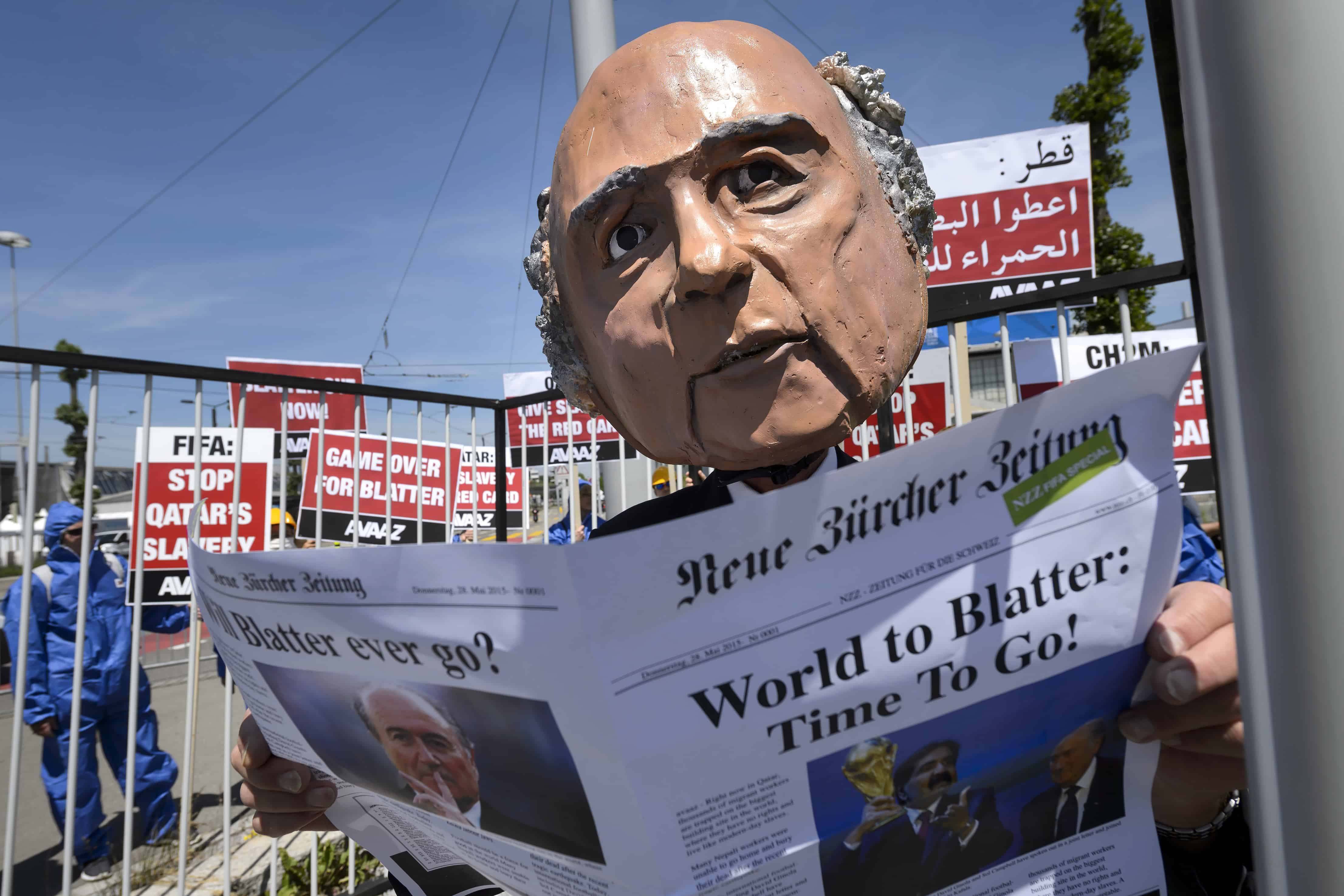As many amateur humorists on social media noted Wednesday morning, there’s a certain appropriateness to the United States having been the country to articulate and disrupt alleged corruption within the governing body of international football. There are few secrets so poorly kept that billions of people know them, but FIFA’s sketchy practices were one of them. Leave it to the football-indifferent Yanks to finally point out that the emperor’s clothes appear to be stolen.
But from a practical standpoint, it’s worth explaining how, exactly, the United States can point out a criminal conspiracy involving a foreign organization and then have people arrested in Europe. The idea of the United States as the world’s police force is rarely understood to be so literal.
To understand how the United States was able to flex its legal muscle across the Atlantic, we spoke by phone with Jessica Tillipman, assistant dean and lecturer at the George Washington University Law School.
“You have U.S. statutes where there are extraterritorial provisions that can reach foreign citizens if they violate certain laws,” Tillipman explained. For most of those laws, there has to be “a jurisdictional hook,” she explained, an aspect of the crime that took place within the United States’ jurisdiction: A phone call that included a person in the United States, for example, or a visit to the country, or, as has happened, an email that passed through a server in the country. “There has to be some sort of touch point for the United States,” Tillipman said.
See also: FIFA scandal: Successful Qatar bid for World Cup aroused suspicion among US officials
In the case of the FIFA charges, the alleged crimes include wire fraud. In an email to The Washington Post, Prof. Jennifer Arlen of the New York University School of Law pointed out that the need for jurisdiction in that case is fairly rigid. “With wire fraud, one needs a wire that originates in the US,” Arlen wrote. “This means that most of the acts of bribery that occurred [within FIFA] over the years would not be covered.” On Wednesday morning, the FBI searched the offices of CONCACAF, FIFA’s continental confederation located in Miami. Among the companies alleged to have been involved in criminal activity is Traffic Sports USA Inc., which also is based in Florida.
Once charges are filed, it’s not necessarily the case that a foreign government has to take action against the accused. In the case of FIFA, it seems as though the United States and the government of Switzerland, where the officials were arrested, had been working together on the charges. If not, it’s up to the country where the alleged criminals happen to be to decide whether to effect an arrest. “Sometimes they’re able to get them without extradition,” GW’s Tillipman pointed out. “They can lure people to the United States, they land, and — surprise! That kind of thing can happen.” But often, it’s up to law enforcement in other countries.
Just because the Swiss agreed to arrest the FIFA officials doesn’t necessarily mean they’ll be extradited to the United States to face trial in a federal court. In general, “it depends on the U.S. extradition treaty with Switzerland,” Tillipman said. “There are certain financial crimes for which the Swiss will not extradite.” What extraditions usually require is “dual criminality,” she said, meaning that the crime is also a crime in the country where the arrests are made, whether or not the crime goes by the same name. In this case, though, it seems that the more likely obstacle to extradition would be legal defense on behalf of the accused, who have certainly already started trying to figure out how to get their clients off the hook.
“We’re seeing increased cooperation among governments in apprehending citizens of foreign governments that commit these crimes,” Tillipman said. “We’re kind of seeing an internationalization of criminal law.”
So maybe the United States doesn’t have the strongest track record on taking an interest in football. But when it comes to flexing international muscle, we’re usually the champions — which makes the FIFA arrests far less surprising.
© 2015, The Washington Post






